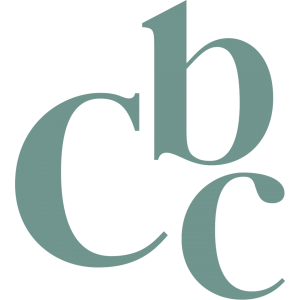The digital marketing world has been abuzz with the recent Google search leak, but the takeaways are not limited to just SEO practitioners. Public relations teams should pay attention to what this means for all content creators – PR included.
Megan Paradis, CBC’s head of Research & Insights and Manager of Marketing Analytics, breaks down what the Google search leak is, why it matters, and 4 reasons why modern PR pros need to have a seat at the table when it comes to content creation, digital or otherwise.
What is the Google search leak?
In May 2024, an anonymous source leaked thousands of internal API documents from Google, revealing ranking attributes that make up Google’s search algorithm.
While the algorithm itself was not leaked, this news still made big waves in the SEO community, with experts poring through the documentation to uncover new insights about how Google really works.
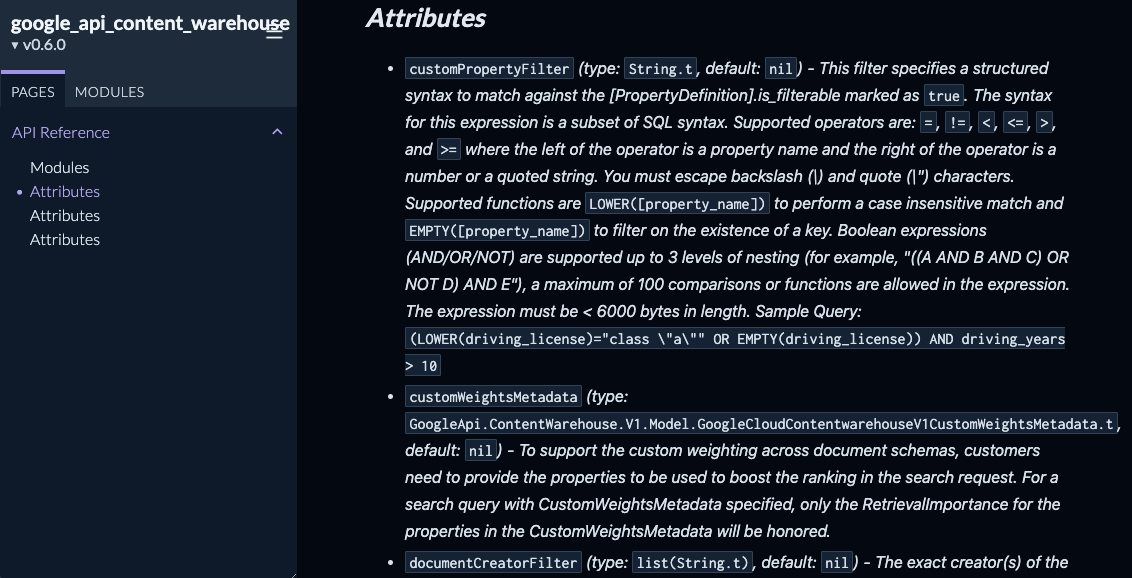
Screenshot of Google API Content Warehouse released in the leak.
Think of Google’s API documentation as an ingredient list, with the full search algorithm as the recipe. Even without seeing the steps of a recipe, you can still make educated guesses about the final product based on which ingredients go into it.
Since the dawn of SEO as a field, there have been algorithm chasers who want quick fixes to improve their search rankings. They latch onto “hacks” that will make Google prioritize their content. But anything that seems too good to be true probably is.
The findings from this recent leak mostly boil down to common sense best practices. There’s no shortcut to good content strategy outside of creating good content.
Why should PR pros care about SEO?
We’ve written in the past about how SEO is relevant to PR and critical for integrated campaigns.
If there’s anything new & notable to take away from the Google search leak, it’s that there is even more overlap between PR and SEO than you might have realized. PR pros can help their SEO counterparts level up their content strategy – not through “hacks” but with communication smarts.
1. Great content is the holy grail.
Whether you’re creating content for PR or SEO, the #1 rule is to create something worth reading.
If you can do that, the results will follow. Google will rank you for relevant searches. Media will cover your stories.
This matters now more than ever with the rise of low-quality AI-generated content. Google wants to see content that took human effort to create, and so do readers.
2. Where you’re mentioned matters.
One key factor in Google’s search algorithm is the domain of the site that’s talking about the topic.
A mention on a website domain with millions of visitors and credibility built over time matters more than a mention on a site created last week with no inbound traffic. Google tracks the domain authority of each site, and they know that users are more likely to click on results from bigger, more established websites. The higher-authority site would get ranked higher on a search results page because it’s a better result for the end user.
PR can get your brand mentioned on the right sites. “Right” in this context means both relevant and high-authority. Outlets that check both boxes will be the best sources of influence for your audience & for SEO-related goals.
Authority of PR and SEO Mentions
Authority is key: both Google and real-life human readers put more weight behind content from someone they trust. Would you be more likely to buy a product vetted by a team of experts at Good Housekeeping or a product recommended by a blogger you’ve never heard of before?
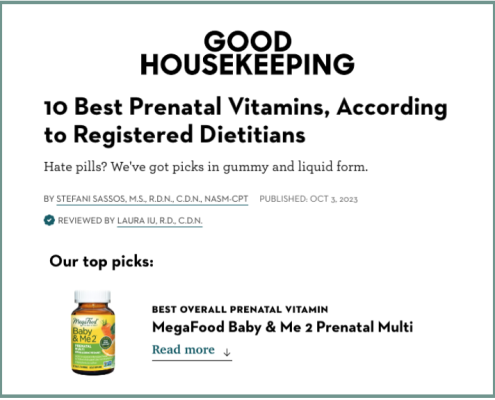
PR coverage earned in reputable media outlet Good Housekeeping by CBC for client MegaFood. The article is written and reviewed by registered dietitians, lending credibility to their recommendations.
Relevance of PR and SEO Mentions
Relevancy to your niche is just as important, since it associates your brand with the topics you want to be known for. These associations help Google know what keywords you should rank for. It also helps connect you with your target readers.
For example, food & beverage brands should be targeting top food publications like Food & Wine or Eat This, Not That. Coverage in these outlets will reach more of your core audience than coverage in a totally unrelated publication like Golf Digest. Mainstream legacy press helps too (who doesn’t want to be in The New York Times?) but your PR strategy should be focused on the most relevant outlets first.
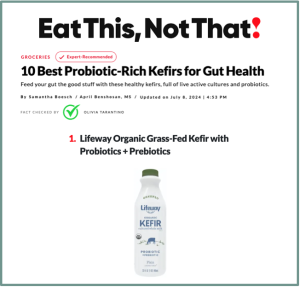
PR coverage earned in top food outlet Eat This, Not That by CBC for client Lifeway Kefir. Expert-backed grocery recommendations reach a key consumer audience interested in healthy foods.
3. Authorship matters.
Google knows who is behind a piece of content & what topics an author is most well-known for. Articles written by someone with proven expertise in a subject rank higher in search results than pieces written by anonymous or random authors.
And just like with outlets, the author’s expertise has to be relevant to a topic: a NASA scientist might be a top author for content about astrophysics, but their round-up of favorite clean skincare products would not rank highly in Google search results (nor would it resonate with their core audience). An editor who specializes in the clean beauty beat would be more likely to earn a #1 ranking and reach relevant readers.
Media relations folks, this is where your knowledge of the media landscape comes in. You already know who the top editors are in your space, what they’re writing about, and how to pitch them. Leverage your relationships with writers to get earned media coverage on their site or partner with them to create content for your own site.
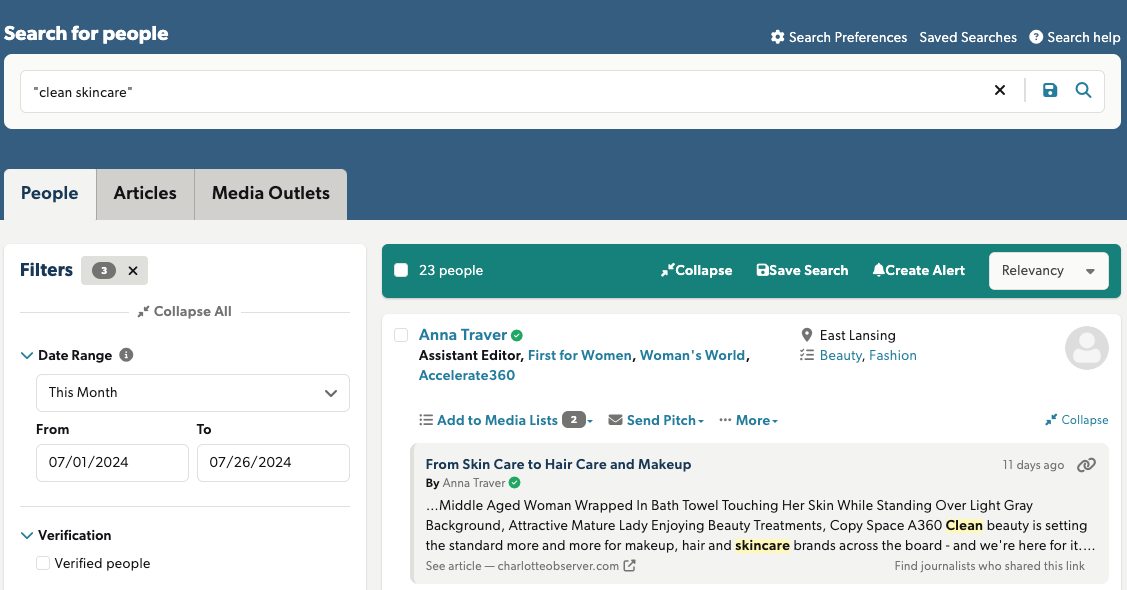
PR professionals use tools like Muckrack to identify people who write about specific topics, in addition to sustaining relationships over time with key media in their industry.
4. PR coverage boosts SEO rankings.
PR’s focus on building top-of-funnel brand awareness can give a competitive advantage to SEO.
High-quality content in earned media gets people interested in your brand. When more people are aware of your brand, more people search for your brand name on Google and more people visit your website.
The Google search leak confirmed that branded search and traffic are both elements of the search algorithm. More searches and more traffic signal to Google that they should care about your brand’s webpages, which can boost your rankings.
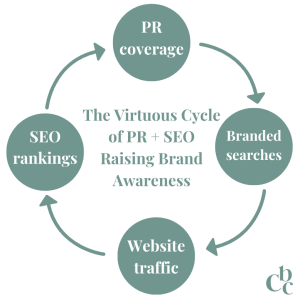
Earned media coverage starts a virtuous cycle of raising brand awareness, which causes users to search for your brand and visit your website. These signals boost your likelihood of ranking in Google search results, thereby further increasing your brand’s visibility among key audiences like consumers and the media.
Do Backlinks Still Matter?
Media relations experts know that even if you provide a journalist with a link to your site, they may not always include it in the final piece. Sometimes the publication has its own guidelines around not linking to brand sites or around prioritizing Amazon affiliate links, so backlinks to your domain are never guaranteed.
The good news is that backlinks are not required for your brand to get value out of the mention. Backlinks in earned coverage are still helpful if the editor is willing to include them, but any mention of your brand name is valuable.
- With this recent search leak, there’s mounting evidence that Google’s search algorithm takes into account both backlinks and unlinked brand mentions.
- Don’t underestimate the tech-savviness of your audience. People know how to find you if they want to learn more: all it takes is a quick Google search.
Breaking Down Barriers Between PR & SEO
If you learn just one thing from the Google search leak, let it be the importance of cross-discipline collaboration between SEO and PR teams.
SEO and PR pros both know the importance of writing for a specific audience, satisfying their needs, and establishing credibility as the expert on a topic.
SEOs may have a deeper understanding of technical search engine optimization and digital tactics, but PR experts bring their knowledge of how to frame a story to hook readers, craft high-quality content, and position a brand as a thought leader.
We didn’t need the Google search leak to confirm this, but it does reinforce the importance of expertise, authority, trustworthiness, relevance, and brand building. This in turn reinforces the cross-functional value of PR as communications professionals and content creators.
Breaking down barriers between PR and the rest of your marketing organization may not be a quick or easy “hack” to instantly improve marketing performance, but it is the path to creating truly remarkable content.
Worried that your PR function is too siloed? Reach out to CBC to learn more about the benefits of working with a hybrid PR agency.
About the Author
Megan Paradis is the Manager of Marketing Analytics at CBC, where she works at the intersection of data and strategy to uncover insights that fuel campaigns.

